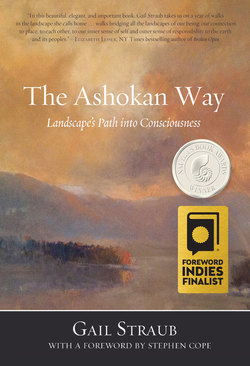Читать книгу The Ashokan Way - Gail Straub - Страница 8
На сайте Литреса книга снята с продажи.
5 Foreword by Stephen Cope
ОглавлениеIn the Spring of 1852, a twenty-six-year-old Henry David Thoreau had just finished his two-and-a-half year stint at his cabin on Walden Pond, and was engaged in perhaps the greatest literary challenge of his life. He was revising his greatest work, Walden: Or, Life in the Woods, and had come face to face with the central challenge of that book: how to use words to make an energetic connection between the vivid and enchanting world of nature, and the inner world of the human mind and soul.
As we all know, of course, Thoreau succeeded brilliantly, and “nature writing” has never been the same since.
Gail Straub’s quiet masterpiece, The Ashokan Way, builds on Thoreau’s discoveries in every possible way. Her accounts of her daily rambles through her own Catskill Mountain by-ways move effortlessly back and forth between exterior and interior landscapes. We come to know Straub’s beautiful inner world as we come to know, too, the very real outer beauties—and occasional terrors—of her mountain home. And, indeed, we come to see how one creates the other.
The Ashokan Way must remind the reader of John Burroughs own extensively chronicled rambles through the self-same Catskill Mountains, or of John Muir’s epic relationship with the Sierra Nevada.
But there is something more in Straub’s work. It is the factor of time, of movement—of the cycles of the year and their relationship to our inner life. In many ways, Straub does for the Catskill Mountains what Henry Beston’s classic, The Outermost House did for the wild beaches at Truro on Cape Cod. It places the human experience in the context of the ebb and flow of the seasons—allowing us to bow for a moment to forces so much more vast than our small selves that we can for a moment feel our right relationship to nature. Just as Thoreau discovered the thrill of “the wild” on Maine’s Mount Katadhin, so Straub discovers the thrill of being “right-sized” in the face of awful, wonderful, terrifying, awakening nature.
Toward the end of his life, Thoreau wrote, “I have traveled extensively in Concord.” So, too, has Straub traveled extensively on the Ashokan Way. And we are the better for it.
–Stephen Cope
Lenox, Massacusetts
